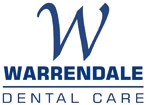You don’t have to take no for an answer
If you experienced tooth loss some years ago and went to the dentist in Herefordshire, dental implants may not have been an option for you. You may have been told that they just won’t work because your jawbone has deteriorated too much since your tooth loss and it can’t support dental implants. Times have moved on and this is no longer a reason not get treatment with dental implants in Herefordshire.
 At Warrendale Dental, we are experienced in treating patients who in the past may have been told no when they asked about getting dental implants in Herefordshire. All this probably means is that you’ll need some preparatory work to get your jawbone ready for implants.
At Warrendale Dental, we are experienced in treating patients who in the past may have been told no when they asked about getting dental implants in Herefordshire. All this probably means is that you’ll need some preparatory work to get your jawbone ready for implants.
We’ll build you back up
Tooth loss can quite quickly result in a degenerated jawbone. Within the first year after tooth loss your jawbone can deteriorate by up to 25%. When you come in for an implant consultation, we’ll take x-rays to check the state of your jawbone. If it has already lost a significant amount of density, then you will probably need treatment to build it back up. If you are looking to get dental implants in Herefordshire to replace teeth in your upper jaw, this treatment will involve a sinus lift. If you need dental implants for your lower jaw, then you may need a bone graft.
Taking a long view
A sinus lift isn’t the only way to ensure you can have missing teeth in your upper jaw replaced with dental implants. We also offer zygomatic implants. These are a special kind of dental implants in Herefordshire which are much longer than the traditional kind. Instead of being anchored into the jawbone, they get their support from being rooted within the cheekbone, also known as the zygomatic bone.
What can you do?
There are a few other reasons you may have been told no for dental implants in Herefordshire; smoking and uncontrolled diabetes. Both can make healing after your implant surgery more difficult. So, if you want to turn that no into a yes, you’ll need to quit smoking and get your diabetes under control. Then you can take the first steps towards restoring your dental health.

